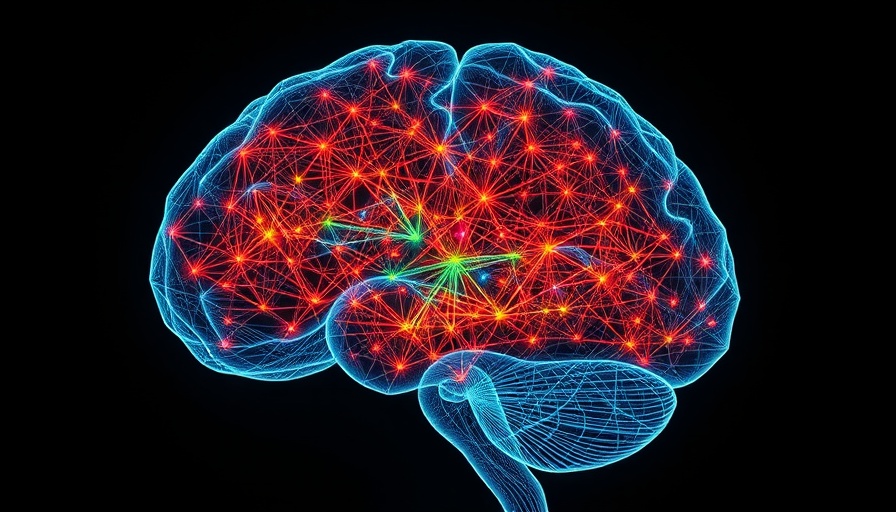
Impact of COVID-19 on Cognitive Health
The global COVID-19 pandemic has not just been a public health crisis; it has also triggered an unforeseen escalation in mental health challenges, substantially impacting cognitive ability. A new study has revealed that the restrictive measures associated with COVID-19 have contributed to an accelerated aging of the brain, with findings suggesting a brain aging acceleration equivalent to over five months. For parents navigating both their own mental wellbeing and that of their children, the implications of cognitive decline are alarming, as they signal a potential increase in mental health issues that may not be immediately visible.
Understanding the Acceleration of Brain Aging
Research has documented that prolonged stress, isolation, and anxiety levels arising from the pandemic can culminate in biological changes in the brain, leading to accelerated aging. Parents, already dealing with the backdrop of pandemic-related stressors, are at a heightened risk for cognitive decline. The implications for family dynamics, parenting approaches, and children's mental health are significant, emphasizing the need for proactive measures to safeguard family mental wellbeing.
Long-term Effects on Families
As parents observe behavioral changes in their children, it is essential to consider how the pandemic's stresses may affect emotional intelligence and social skills development. Studies have shown that children who experience higher levels of parental stress may exhibit increased anxiety and emotional disturbances. This cascading effect urges families to seek comprehensive support systems, integrating traditional and alternative therapeutic options into their daily lives.
Alternative Therapies: A Path to Healing
With the surge in mental health challenges, parents are increasingly turning to alternative medicine to complement traditional medical approaches. Practices such as mindfulness, meditation, and holistic healing have gained traction in addressing family mental health. Whether utilizing herbal supplements, acupuncture, or therapeutic massage, many families are exploring integrative health solutions tailored to individual needs. In South Africa, traditional healing practices like Sangoma healing meld seamlessly with modern health care, offering unique avenues for emotional and cognitive restoration.
Practical Strategies for Mental Wellness
To mitigate the adverse effects observed during the pandemic, parents can incorporate daily practices that support cognitive health. Strategies include engaging in regular physical activity, practicing mindfulness, and seeking social connections through community support. Additionally, introducing holistic wellness techniques, such as aromatherapy and natural remedies, can foster a nurturing environment conducive to mental health recovery for both parents and children.
The Importance of Addressing Mental Health Holistically
With the complexities surrounding brain health post-COVID-19, prioritizing a holistic approach to mental wellness is imperative. It involves understanding the emotional landscape of the family unit, utilizing therapies that address not only physical but also emotional and spiritual health. By integrating alternative and complementary health practices, parents can create an environment that nurtures resilience and promotes cognitive longevity.
Empowering the Community
As the effects of the pandemic linger, community involvement becomes crucial in advocating for mental health awareness. Families should feel empowered to share their experiences, supporting one another in breaking down stigma around seeking help for mental health issues. Utilizing local resources, from herbalists to wellness retreats, families can foster a collective healing journey that acknowledges both the challenges of the pandemic and the pathways to recovery.
Conclusion: Taking Action for a Healthier Future
The impact of COVID-19 on brain health is a pressing concern for parents today. It's essential to recognize the multifaceted nature of wellbeing, which encompasses emotional, physical, and mental aspects. By embracing both traditional and alternative healing modalities, families can mitigate risks associated with cognitive decline and foster a healthier, more resilient future.
 Add Row
Add Row  Add
Add 




Write A Comment